As the sun beat down on Delhi’s Barapullah flyover in 2017, a couple found themselves caught in a moment of decisive clarity. Amit, an employee at HDFC Bank, confided in his wife Shipra, an advertising professional at Outlook Magazine, “I can’t do this anymore. I’m resigning.”
He then asked her, “Will you resign as well?”
Shipra nodded. “Let’s do it.”
The road ahead was unclear, but their minds were made. “We knew we were going to follow our hearts,” she says. Shipra now reflects that perhaps they should have made this move earlier.
For a long time, the childhood friends had been craving something beyond the confines of a nine-to-five routine. Both had a passion for the natural world and organising forest trips. And they were both fond of food. They began to wonder if they could shape their lives around this shared passion.
Leaving their careers in Delhi behind, with no back-up plan, Amit Kumar Srivastava and Shipra Mohan Sinha moved to Devikhal in Uttarakhand, where they had already set up a quaint café in 2013.
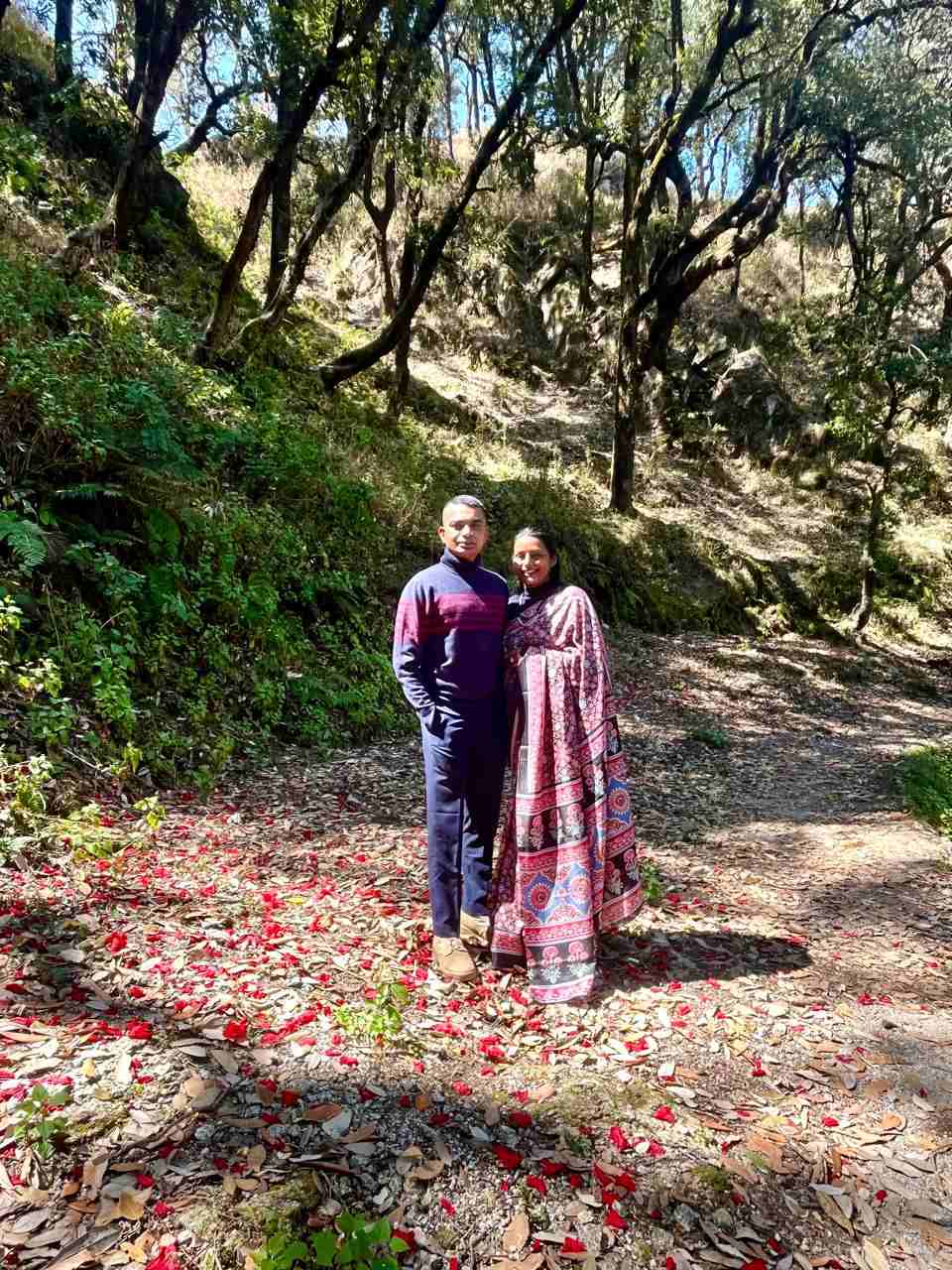
The idea for the café had first taken shape during Amit’s hiking trip to Tungnath. A local there had informed him of an old mule shed that was sitting idle. This spot turned out to be ideal, and soon, Amit and Shipra purchased it with their savings and turned it into a small and cosy café.
Named Lansdowne Trip Travel Café, they thought of it as an experiment at first. “We only offered green tea and sandwiches,” he remembers.
The café had no visitors for the first six months, even with four locals on staff to keep the café open. “We brought onboard young team members to help them with their educational expenses,” he says.
On weekends, when they were not working, the couple travelled from Delhi to Devikhal to train their team, hoping that the word would spread and attract more visitors.
“Our goal was to create something distinctive and provide jobs to the local community,” Amit explains to The Better India, noting the high migration rate from Devikhal. They aimed to reverse this trend by giving people reasons to return home.
Here’s how they pulled off this mammoth feat.
Always wanted to settle in the hills
The couple, who had been together since Class 10, always knew they wanted to settle in the hills. And they worked tirelessly to that end.
Quite surprisingly, their café’s USP was its continental food. Amit and Shipra taught their staff how to cook pizzas, pastas, and make milkshakes. “The allure of having continental dishes in a village was fascinating to both locals and visitors,” he explains.
The café’s popularity soared, leading to a flood of customers and a stream of positive reviews online. The scenic countryside view made waiting in line a pleasant experience for many.
However, in 2020, the couple relocated their café to Lansdowne. The reason? “We wanted a remote, less commercialised location to create a truly unique experience,” Shipra explains.
Lansdowne’s dense forests were perfect for them — they wanted to be close to nature and enjoy mountain treks. The area’s quiet charm and its closeness to their old place in Devikhal were also big pluses. Besides, they were confident that their loyal customers would make the journey.
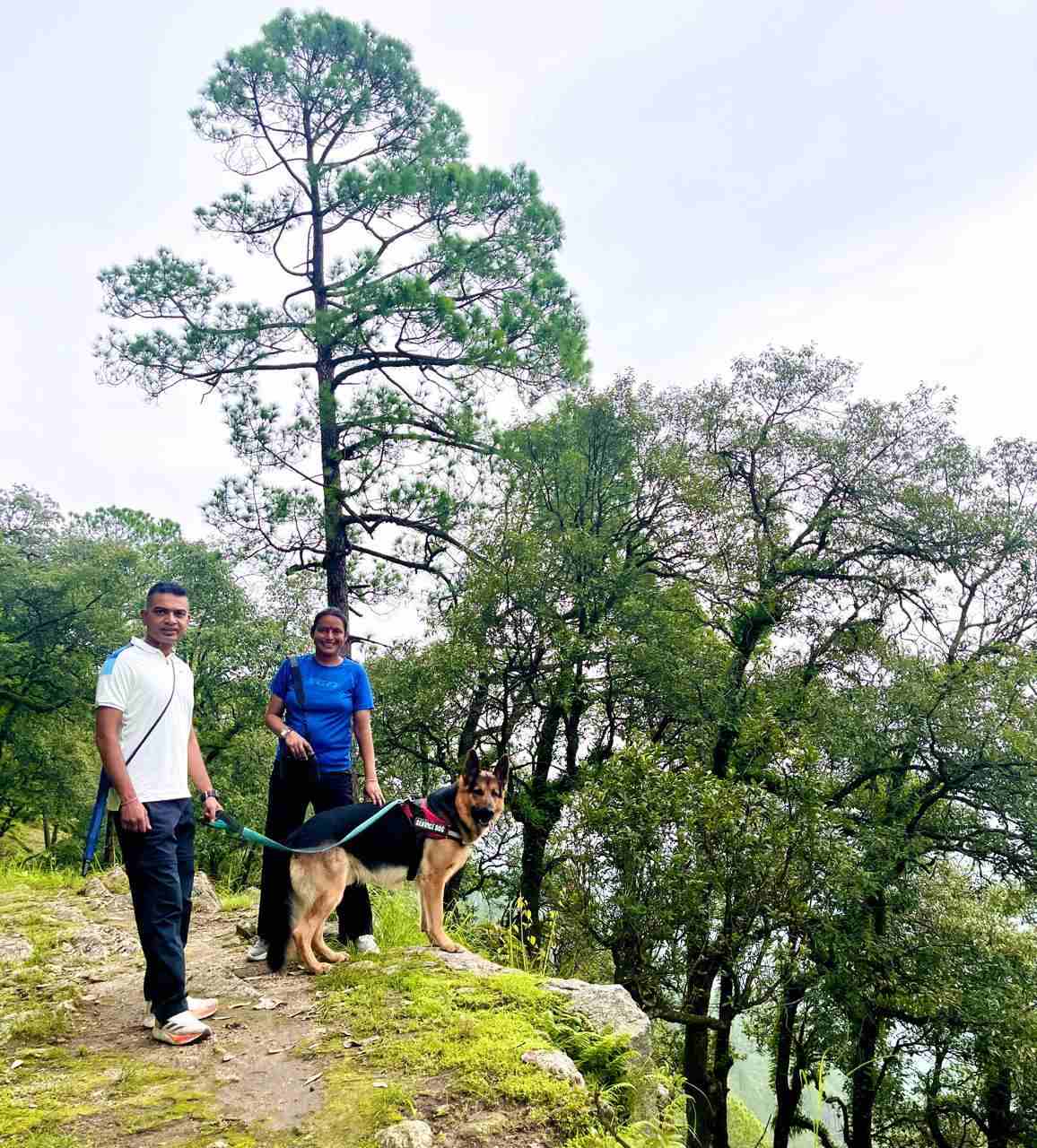
They knew moving their café to hill stations like Nainital or Mussoorie would be pricey. And having previously visited Lansdowne, they found that as a cantonment area, it would be easier to obtain land permits. The land was leased to them after they presented their plan to make a café to officials. Besides, the land was located away from the main market and thus had little interest from others.
Lansdowne is a far cry from city life. “Everything is a DIY project here,” Amit adds. You have to plan meticulously. For instance, if rain is anticipated, you must prepare by ensuring your drainage system is effective. In Lansdowne, help isn’t just a phone call away like in the city.
The hilly region is prone to heavy rainfall, leading to issues with water runoff. Amit tackled this by fitting a pipe on his roof that serves as both a rain gutter and a drainage system. In addition, they make sure to store all food items in the café with proper sealing to prevent mould growth.
A journey through time
The café is nestled among heritage buildings from the British era, including St Mary’s Church, which serves as a museum showcasing pre-independence history. “If you are in a hurry, give us a miss,” reads the café’s tagline.
“What truly matters is that our guests experience a journey through time,” Shipra says with a smile. She proudly mentions that the café has earned TripAdvisor’s Traveller’s Choice Award for the ninth year in a row.
Its team consists of five permanent local employees, and during busy times like the monsoon, the couple recruits extra help on a temporary basis. Its guest list includes prominent figures like Anupam Kher, Jackie Shroff, Boman Irani, and Major General GD Bakshi.
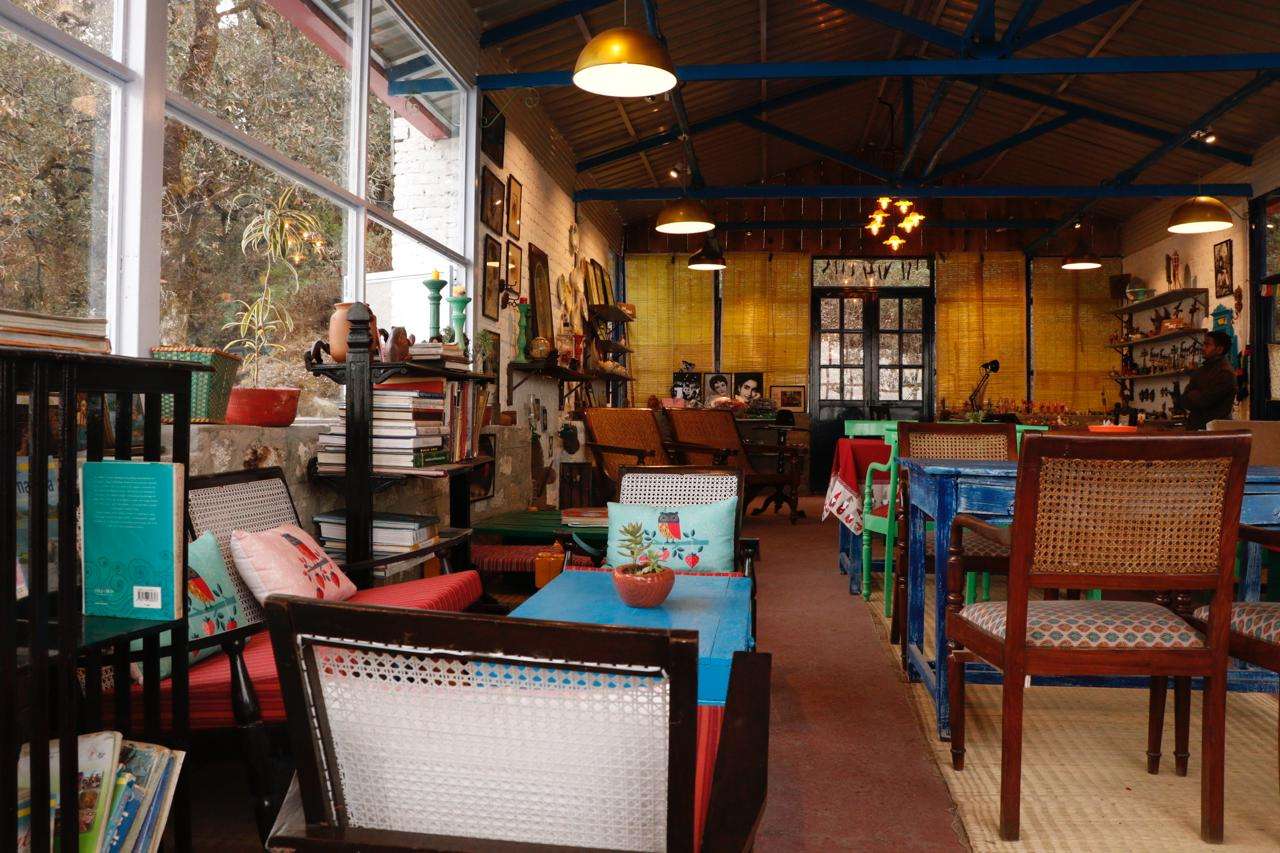
“Whenever someone asks about our chef, I enjoy telling them he had no cooking skills before joining us,” Amit chuckles.
Many of their staff members had previously worked as labourers. “We hire those who are unskilled but are motivated to learn,” Amit shares. “We want to develop their skills to give them the option to advance their careers and find work elsewhere in the future if they wish.”
When they initially began training their staff, the team was resistant to learning. “We needed to convince them that the variety of continental foods we offer could be successfully prepared and would generate revenue,” Shipra says. As the staff witnessed the results, their faith in Amit and Shipra’s vision grew.
Shipra admits that gaining this trust was a gradual process, which is why fostering a sense of community has always been their primary goal.
One of their top chefs, Deepak (28), had lost his job during the pandemic. The couple then offered him a position, despite him initially expressing that he came from a poor background and lacked formal cooking skills. “I had no savings, and all I wanted was a job,” he shares with The Better India.
He’s recently bought a scooter and expresses how thrilled he was at the opportunity to learn about continental cuisine while catering to a diverse range of customers each day.
Its signature dish is the fish and chips, complemented by a range of other offerings including falafel, salami and sausage sandwiches, wraps, and chicken momos. They also offer up to six different Maggi varieties and seven types of omelettes. The fresh Singhara fish is a favourite among visitors. While salami, bacon, and pepperoni are kept frozen, all other items are made fresh daily.
But why did they prioritise continental dishes over local cuisine? “We wanted to introduce locals to a different dining experience, something that deviates from their local dining options.”
The café serves a mix of Indian and continental foods, with chefs ensuring everything is prepared fresh. They start their day by making fresh tomato puree, and patrons have grown fond of the variety the café offers.
Boosted revenue for nearby shops and offered opportunities to locals
When the couple first arrived in Lansdowne, they struggled to find ingredients like thyme, oregano, salami, and sausages. They had to import these items from Delhi in ice boxes. They now source most of their supplies from a small local shop called Dhobi Ghat.
Since the shop doesn’t have a deep freezer, Amit transports the ingredients to the café as soon as they arrive. The shop, noticing the success of these products, has started stocking cheese, mustard sauce, chocolate syrups, corn flour, and bread crumbs—items not typically used by locals. These high-margin products have helped the shop grow and attract other hoteliers.
The café now features a dedicated counter displaying handcrafted items from local women, such as knitted mufflers and shawls. This initiative helps them earn money from their homes, as many Lansdowne women knit but face difficulties selling their products.
“We pay them in advance to ensure that they don’t worry about their items going unsold,” Amit explains. This support has led to increased confidence among the women, who are now also making socks and caps.
Pavani, a local artisan who previously had little success selling her artificial jewellery, saw 200 of her pieces sell out quickly after Amit encouraged her to display them at the café.
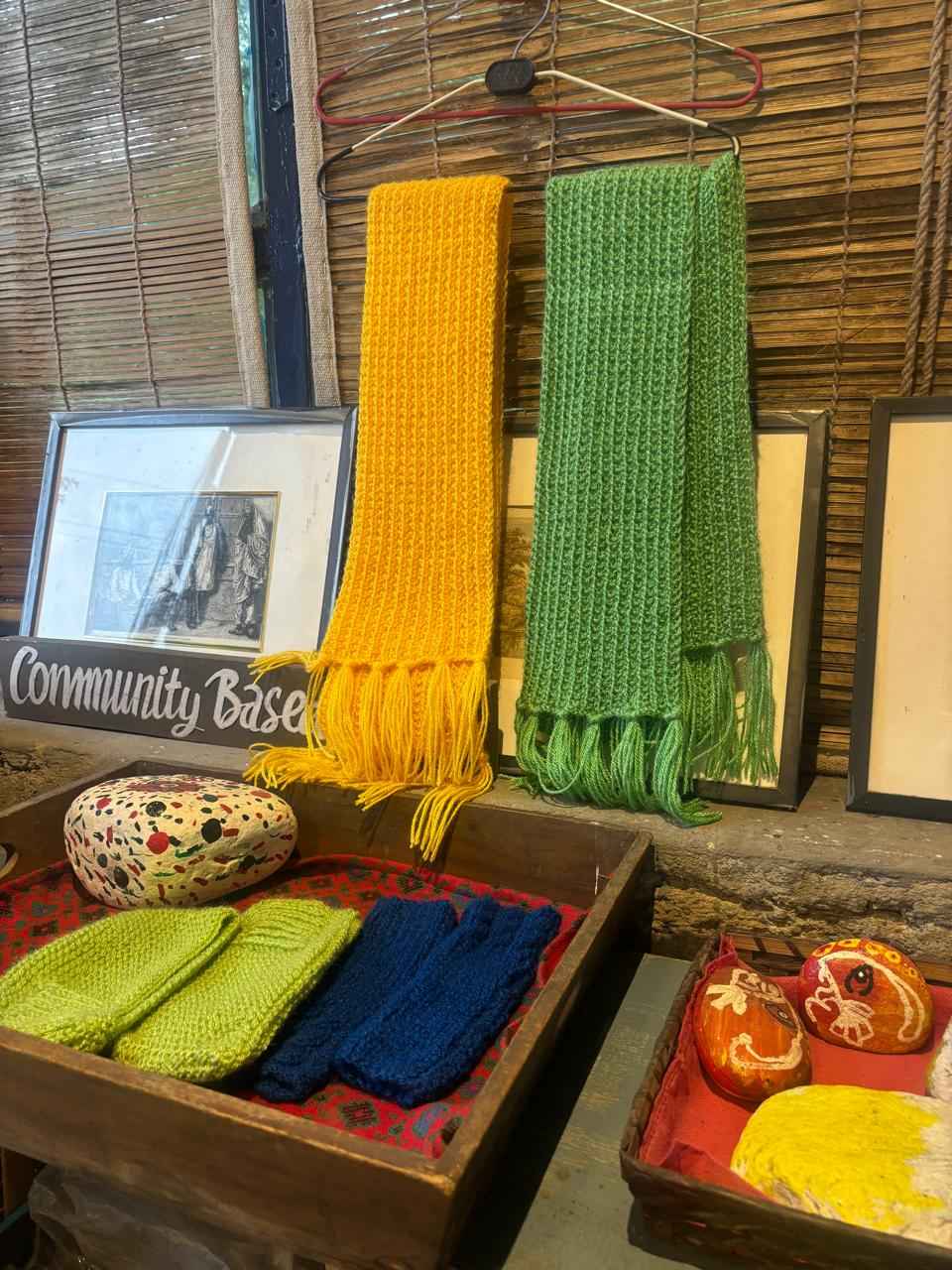
Apart from this, the couple’s love for vintage finds led them to seek out interior designers who collaborated with them in setting up thecafé. “We didn’t purchase any new furniture; all of it is either refurbished or upcycled,” Amit notes.
Even though both Amit and Shipra had no formal background in architecture, their café has sparked interest, leading to owners of several hotels and boutiques inviting them to design their spaces. They are presently designing a wildlife lodge near Kalagarh Dam, a key location in the Corbett Tiger Reserve in Uttarakhand.
At their café, discarded wood is transformed into lamps, dining tables, and staircases. The couple is dedicated to reducing waste. But how do they do this?
They serve water in glass bottles instead of plastic bottles, avoid paper and plastic straws, cut tissue papers into half as tissues are often not used fully by guests. They do not serve packaged food, even if it impacts their profits.
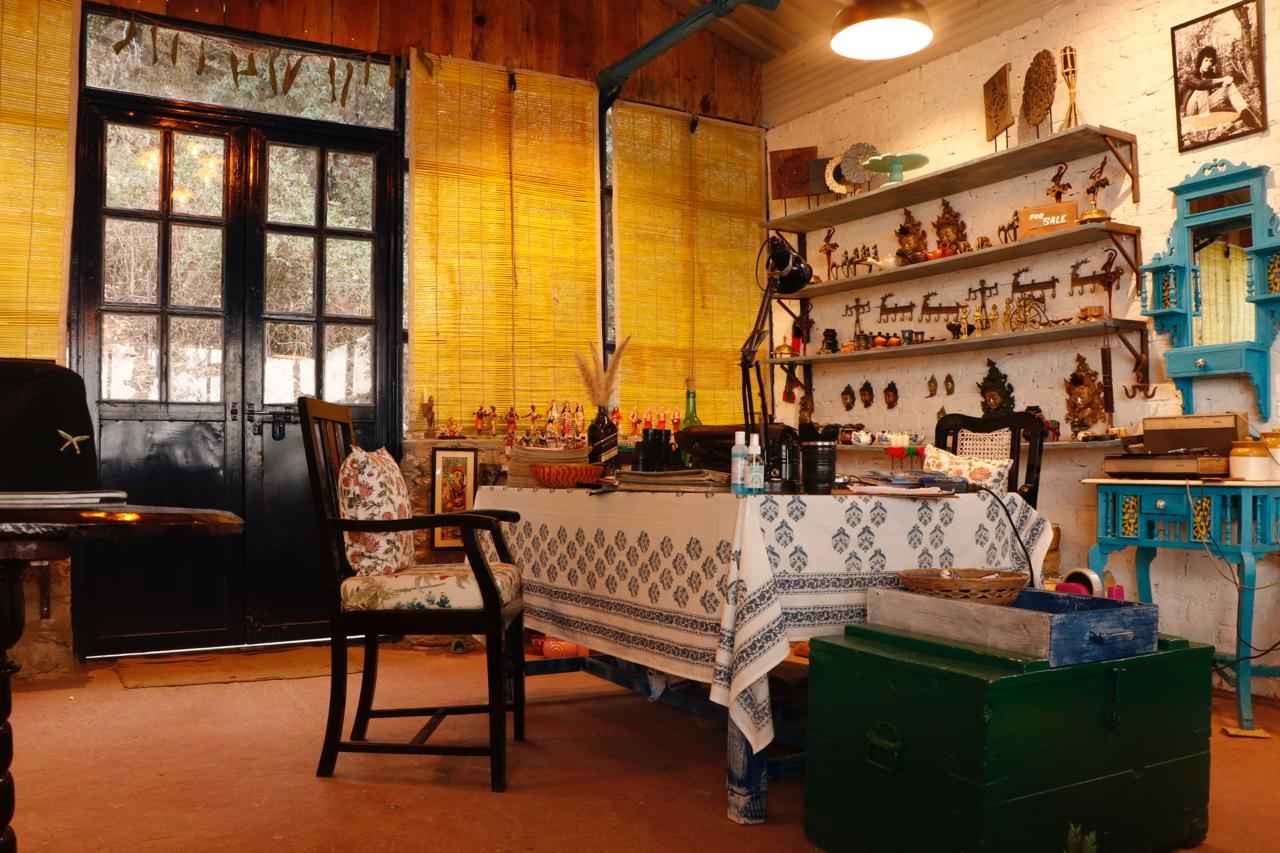
They also serve water in stainless steel glasses with only the amount required being poured to prevent water wastage, and offer refills if needed. They use porcelain utensils, some of which are 13 years old.
“We live on a hill in a delicate ecosystem, and we don’t want to endanger the local wildlife,” Amit explains, pointing out that Lansdowne lacks a proper waste disposal system. To tackle the same, they have created a pit to manage their wet waste behind their café, which is then converted into compost.
“Our primary responsibility is to wildlife”
To keep the forest vibrant and healthy, the couple has planted a variety of local flora including Banj Oak, Horse Chestnut, Kafal, Rhododendron, and Deodar Cedar. They have also set up a special birdbath that attracts local species such as Blue Whistling Thrushes, Black-headed Jays, and Red-billed Blue-Magpies.
This spot provides a safe haven from larger predators like vultures and eagles.
Unlike many larger cafés, this one does not rely on genset generators for backup power. The reason is that these generators produce a humming noise that can disturb the local birdlife.
“Living in a forest, our primary responsibility is to the birds, leopards, mountain goats, wild boars, and other wildlife that call this place home,” Amit explains. To protect the surrounding animals, they keep the café’s lighting dim and the music at a low volume.
As part of their offerings, the couple leads tourists to unexplored spots such as the Kalagarh forest. They offer stays in forest bungalows, equipping them with lanterns and camping chairs as many lack electricity. They also arrange for guests to dine at local homes, thanks to their connection with residents.
“It’s something they really enjoy and adds an authentic touch to their experience,” Amit notes. They also introduce guests to cantonment guards who live in isolation and rarely interact with outsiders. “The guards are always delighted to meet new people and have many stories to share,” Amit adds.
The café created by Amit and Shipra was the first of its kind in Kalagarh, serving as both a café and a tourism spot. Their success drew visitors from all over India and internationally, prompting the emergence of new resorts and properties in the forested region. This expansion has created job opportunities for locals.
“A lot of people here are now employed in the service industry,” Amit shares.
Besides running their café, the duo now works as naturalists, leading excursions to hidden gems like the Kalagarh Tiger Reserve National Park and Jim Corbett National Park.
With training from Taj Hotels, Amit conducts trips to forest bungalows while adhering to forest regulations, such as specific arrival and safari times. Government permits are acquired before each trip, and careful planning is done well in advance.
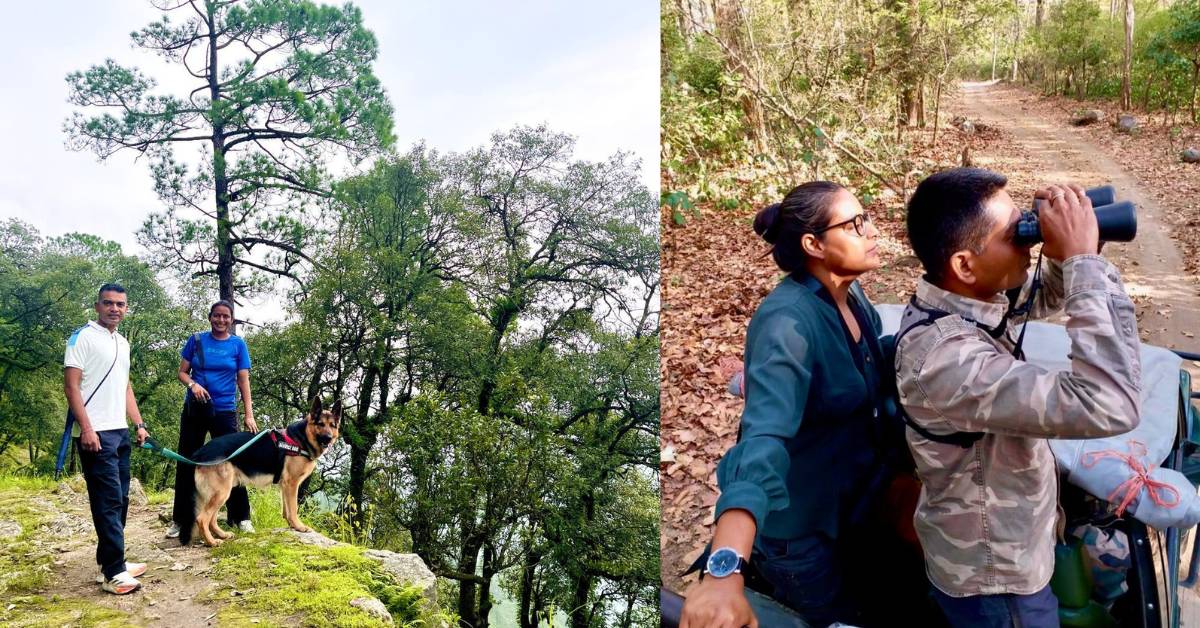
When their friends questioned why they left lucrative jobs in 2017, the couple was certain of their purpose. “Our shared passion is what drives us,” Shipra explains. “We each have our strengths, and working together, we know exactly who excels in what area.”
This partnership enhances their mental well-being and ensures that their decisions are united, whether it’s about designing the café or acquiring materials. She observes that in many couples, one person may be ready for a change while the other is not, but they were both fully aligned in their decision, which has made all the difference in their lives today.
Edited by Padmashree Pande; All photos: Amit Kumar Srivastava
No comments:
Post a Comment